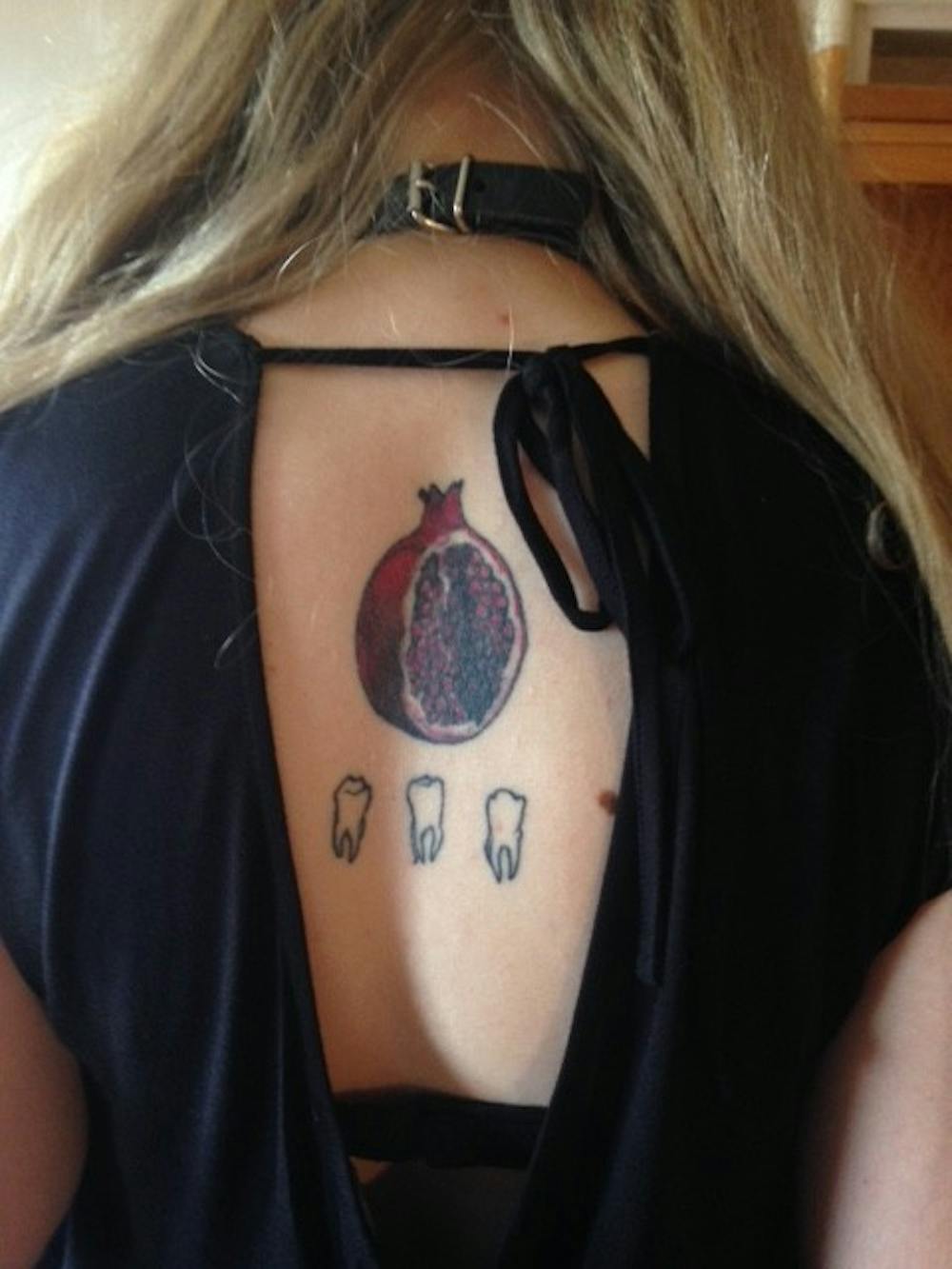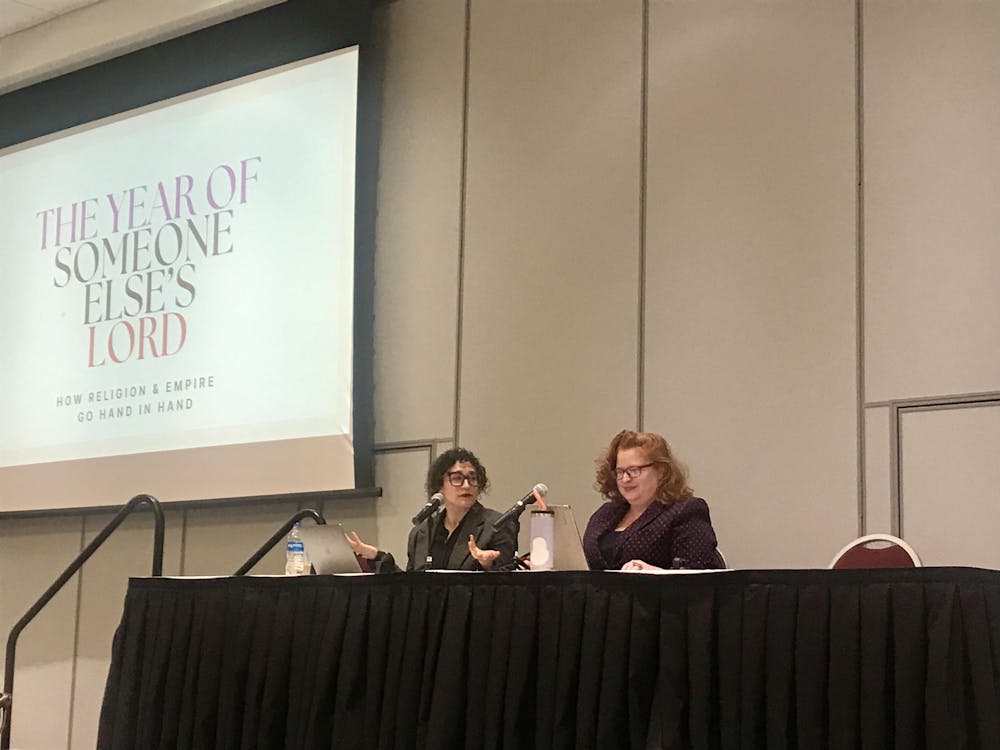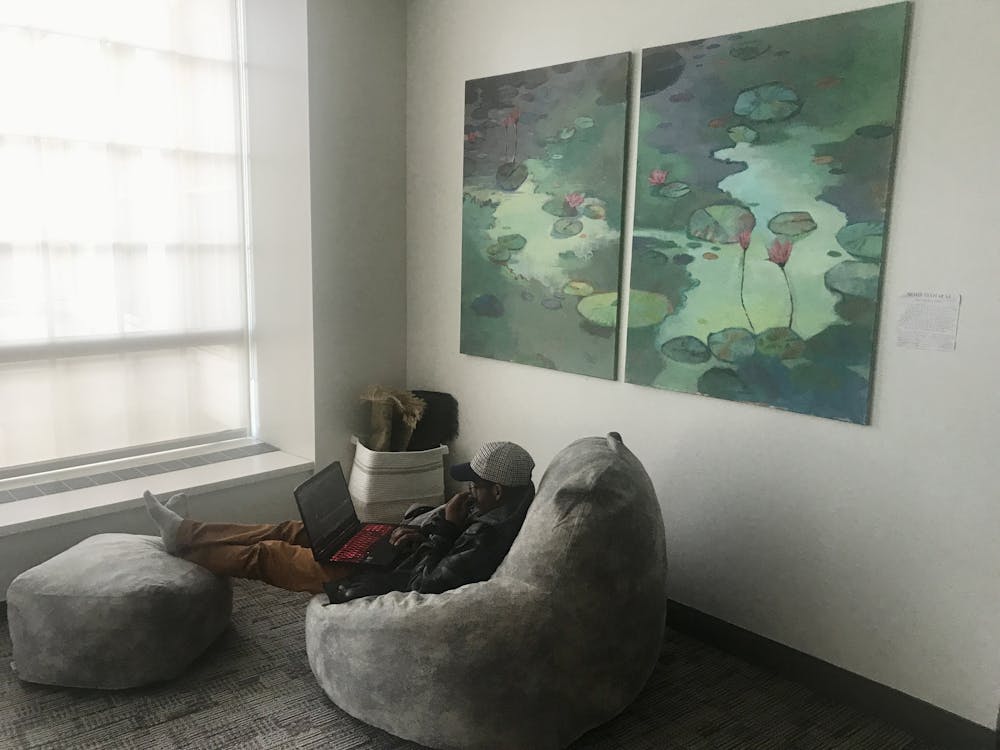In 2013, Miami University surveyed the incoming freshman class about their religious preferences. The overwhelming majority of students identified as Roman Catholics, at 34.9 percent, with other Christian religions filling in close behind.
There were small percentages for Buddhism, Hinduism and Judaism, leaving one tiny yet enticing slice of the pie left unaccounted for. That sliver, representing 2 percent, identified as "other." With the long list of religions on the survey, it's hard to imagine what could have been left out.
First-year Hannah Clarke is one of the mysterious "others." She became interested in paganism in the eighth grade, when wandering in a bookstore she discovered a book on the religion Wicca. "People tend to start in their teens," she said.

Hannah's alter in her dorm room. | Photo by Phoebe Myers
The entry to paganism may begin as a bit of rebellion, but generally ends as most spiritual quests do, with finding a belief system that genuinely fits.
Since the first discovery, Hannah has come to identify as an eclectic neopagan, borrowing practices from the several religions that make up the umbrella term "neopagan."
Paganism is a series of religious beliefs that are often polytheist in nature, meaning a belief in multiple deities rather than one ubiquitous "God." Often, these religions worship gods and goddesses from older cultures, like ancient Greece, Rome or Scandinavia.
While the term "pagan" often invokes images of ancient cultures, yet neopaganism is very modern. Despite some of its practices still being drawn on a few traditions from pre-Christian European religions, most of paganism was created in the late 19th century.
In addition to Wicca, some of the other prominent religions under the umbrella include Asatru and Druidism. Aside from organized groups, there are many solo practitioners like Hannah who don't necessarily subscribe to any one group or belief system.
Even with an organization, many neopagan religions are still based on the lack of dogma and "rules," as they were born in part by people escaping the conformity and restrictions of other large religions like Christianity.
Solo practitioners sometimes feel the need to reach out to other believers, but since paganism isn't widely practiced this can often be difficult to do in person. The rise of the Internet has made connection infinitely easier for neopagans, who can join countless online forums, read blogs or follow social media accounts to discuss religion and get inspiration for their own practice.
In some ways, paganism is so highly individualized it could be viewed as a sort of subculture. Paganism's individual nature also makes it difficult to write articles about, as there is always disagreement about what is or is not truly Wiccan or Asatruan.
Enjoy what you're reading?
Signup for our newsletter
Halfway through her interview, Hannah said that many people would contradict her description of paganism.
"If you meet someone who's pagan, you can't have any assumptions. No one's practices are going to line up," she said.
While there are many differences between believers, some common threads can be found in addition to polytheism. Some pagans may practice witchcraft, meditation, astrology, numerology (belief in the supernatural significance of numbers), herbalism, and some believe crystals have metaphysical properties. Some pagans, like Hannah, worship Satan (although it should be noted most Wiccans strongly dislike Satan and any of his forms.)
"I'm into Lucifer," Hannah said. "A lot of worshipping Lucifer involves self-love, and making yourself the best you can be."
Hannah has had to modify her practice since coming to school, mainly for Miami's fire regulations. She has an altar in her dorm room, where she can focus her energy and give offering to different deities, yet she's really missing the candles. "The lack of candles removed an entire aspect really," she said. This is just one example of the constraints Hannah has found in practicing her religion in modern settings.
When asked how to respectfully approach someone who identifies as pagan, Hannah's response was simple. "Don't go into it with any preconceived notions, because that isn't helpful for you or them."




